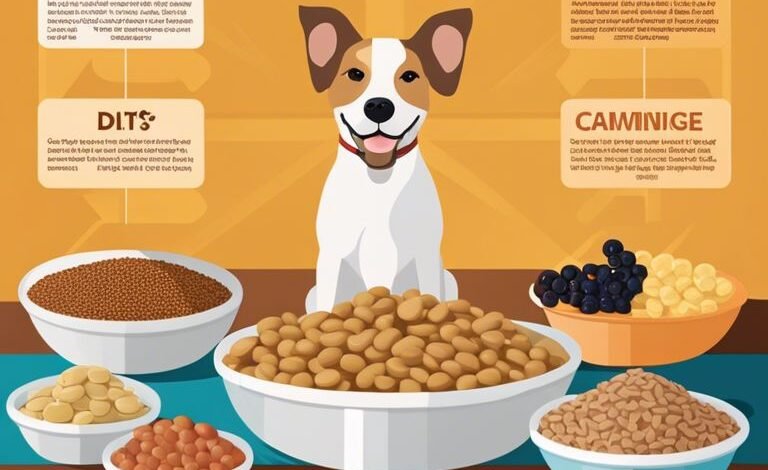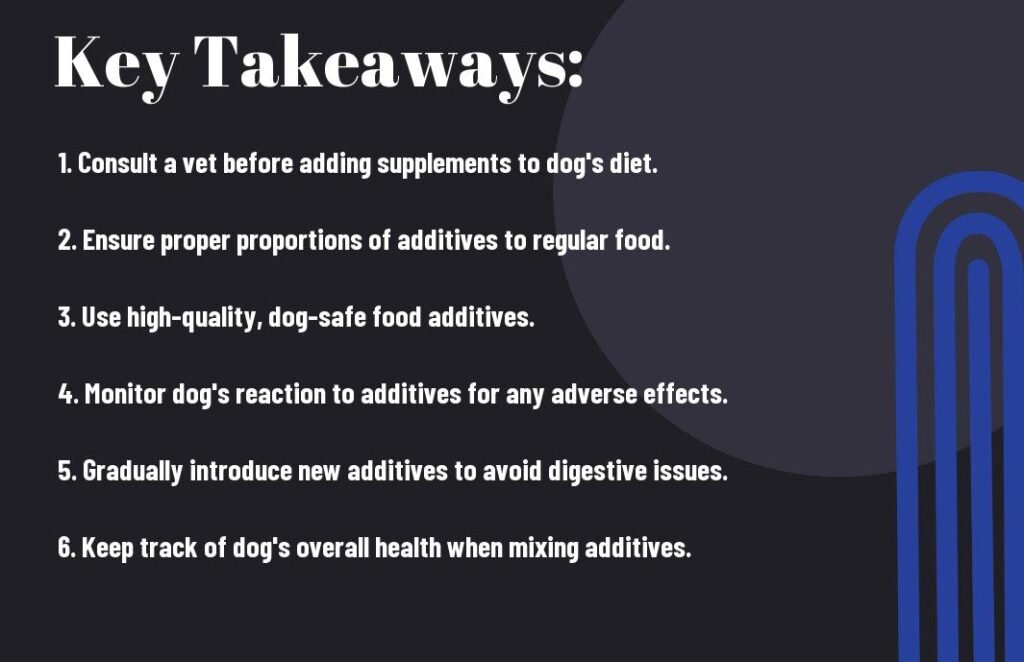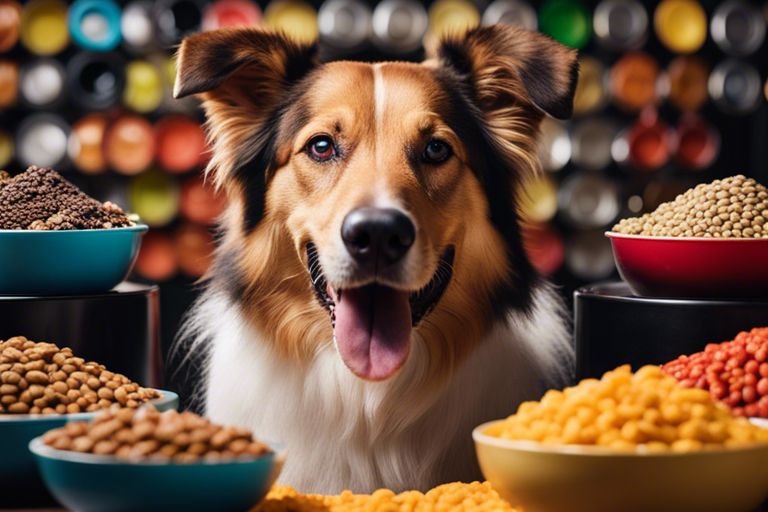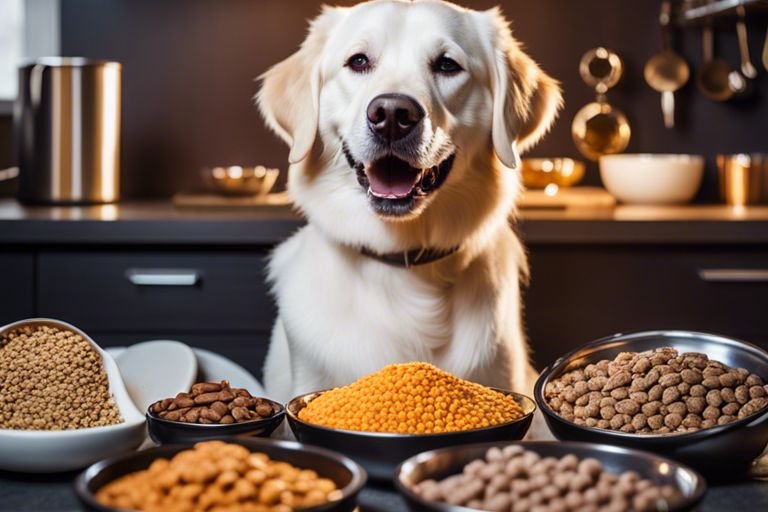
Just like humans, your furry friend can benefit from a little extra boost in their diet. But before you start mixing dog food additives with their regular food, there are some dos and don’ts to keep in mind. In this informative guide, you will learn the proper ways to enhance your dog’s meals for optimal health and well-being. So, let’s ensure your pup gets the best nutrition possible!
Key Takeaways:
- Do: Consult with your vet before adding any dog food additives to your pet’s diet.
- Do: Gradually introduce new additives to your dog’s food to monitor any adverse reactions.
- Don’t: Mix additives that contain conflicting ingredients with your dog’s regular food.
- Do: Follow recommended dosage guidelines to prevent over-supplementation.
- Don’t: Assume all food additives are safe for your dog without proper research.

The Importance of Balanced Nutrition
Why Dogs Need a Balanced Diet
Your dog, like humans, requires a balanced diet to thrive. A well-rounded diet provides the necessary nutrients, vitamins, and minerals that keep your furry friend healthy and energetic. Proteins, fats, carbohydrates, vitamins, and minerals all play a crucial role in your dog’s overall well-being.
Consequences of an Imbalanced Diet
Any imbalance in your dog’s diet can lead to various health issues. For example, a diet lacking in necessary nutrients may cause your dog to have a dull coat, weak bones, or a compromised immune system. On the other hand, an excess of certain nutrients can also be harmful and lead to conditions like obesity or nutrient toxicity.
Another potential consequence of an imbalanced diet is digestive problems. Your dog may experience diarrhea, vomiting, or other gastrointestinal issues if their diet is not properly balanced. It’s necessary to provide your dog with a diet that meets their specific nutritional needs to prevent these health issues.
Choosing the Right Additives
If you’re considering adding supplements to your dog’s food, it’s important to choose the right ones. There are various types of additives available in the market that cater to different needs of your furry friend.
Types of Dog Food Additives
- Vitamins
- Minerals
- Probiotics
- Omega-3 Fatty Acids
- Antioxidants
The key is to understand what each type of additive does for your dog’s health. Vitamins and minerals are crucial for overall well-being, while probiotics promote good gut health. Omega-3 fatty acids are beneficial for skin and coat health, and antioxidants help boost the immune system. The right combination of these additives can enhance your dog’s diet, but it’s crucial to consult with your veterinarian before making any changes.
| Vitamins | Essential for overall well-being |
| Minerals | Support various bodily functions |
| Probiotics | Promote good gut health |
| Omega-3 Fatty Acids | Beneficial for skin and coat health |
| Antioxidants | Boost the immune system |
Factors to Consider When Selecting Additives
- Your dog’s age and breed
- Any existing health conditions
- Your dog’s activity level
- The quality of your dog’s regular food
- Your veterinarian’s recommendations
Choosing the right additives for your dog involves considering various factors. Your dog’s age, breed, and existing health conditions play a significant role in determining the type of supplements needed. Additionally, your dog’s activity level and the quality of their regular food should also be taken into account. It’s always best to seek guidance from your veterinarian to ensure you’re making the right choices for your furry friend.

The Dos of Mixing Dog Food Additives
Despite the convenience of commercial dog food, you can enhance its nutritional value by incorporating additives. These additives can provide various benefits, such as improving digestion, boosting nutrition, and enhancing coat health. Here are some dos when it comes to mixing dog food additives with regular food.
Improving Digestion with Probiotics
The addition of probiotics to your dog’s diet can help improve digestion by promoting the growth of beneficial gut bacteria. Probiotics can aid in the breakdown and absorption of nutrients, leading to better overall digestive health for your furry friend. By adding probiotics to your dog’s food, you can help prevent digestive issues such as bloating, gas, and diarrhea.
Boosting Nutrition with Omega-3 Fatty Acids
To boost your dog’s nutrition, consider incorporating omega-3 fatty acids into their diet. Omega-3s have numerous benefits, including promoting healthy skin, a shiny coat, and overall well-being. These imperative fatty acids can also help reduce inflammation and support cardiovascular health in your pet. By adding omega-3s to your dog’s food, you can support their overall health and provide them with a well-rounded diet. To ensure that your dog receives an adequate amount of omega-3 fatty acids, you can include sources such as fish oil or flaxseed oil in their meals. These supplements can be easily mixed into your dog’s food to provide a nutritional boost and support their well-being.
Enhancing Coat Health with Vitamin E
Improving your dog’s coat health can be achieved by incorporating vitamin E into their diet. Vitamin E is an imperative nutrient that can help promote healthy skin and a shiny coat for your furry friend. By adding vitamin E to your dog’s food, you can help prevent dry, flaky skin and maintain a lustrous coat. Another way to boost your dog’s coat health is by ensuring they receive an adequate amount of nutrients such as biotin and zinc in their diet. These imperative nutrients play a crucial role in supporting skin and coat health, helping your dog look and feel their best. By incorporating these key nutrients into your dog’s meals, you can enhance their overall well-being and support a healthy, shiny coat.

Don'ts of Mixing Dog Food Additives
One of the key considerations when mixing dog food additives with regular food is to avoid over-supplementation. While enhancing your pet’s diet with various additives can be beneficial, overdoing it can lead to excessive intake of certain nutrients. This can potentially cause health issues for your furry friend. If you want to learn more about balancing your dog’s diet, you can read about The Benefits of Mixing Wet and Dry Dog Foods.
Avoiding Over-Supplementation
One vital point to remember is that more is not always better when it comes to supplements for your dog. Excess vitamins or minerals beyond what your pet needs can do more harm than good. It’s crucial to follow recommended dosages and consult with your veterinarian to ensure you are not over-supplementing your dog.
Preventing Interactions with Medications
Interactions with medications can occur when certain additives in your dog’s food interfere with the effectiveness of the medications they are taking. It’s crucial to be aware of any potential interactions and consult with your vet before introducing new additives to your dog’s diet. Your vet can provide guidance on which supplements may negatively interact with your dog’s medication regimen. With a plethora of options available in the market, it can be tempting to add various supplements to your dog’s food. However, it’s vital to remember that certain additives may contain fillers and by-products that offer little to no nutritional value to your pet. Be cautious of products that prioritize fillers over vital nutrients that your dog needs for a balanced diet. It’s important to read ingredient labels carefully and choose additives that provide real nutritional value to your dog.
Steering Clear of Fillers and By-Products
An important aspect of mixing additives with your dog’s food is to steer clear of fillers and by-products that offer little nutritional benefit. Opt for supplements that are transparent about their ingredients and prioritize real, high-quality nutrients for your dog. By choosing additives that are free from fillers and by-products, you can ensure that your dog is getting the best possible nutrition to support their health and well-being. Avoiding unnecessary additives like fillers and by-products can help you provide your furry friend with a diet that is wholesome and tailored to their specific needs. By being mindful of what you mix with your dog’s food, you can ensure that they are receiving the vital nutrients they need to thrive. Note, quality over quantity is key when it comes to enhancing your dog’s diet with additives.
Common Mistakes to Avoid
Mixing Additives Without Consulting a Veterinarian
One common mistake to avoid when mixing dog food additives with regular food is doing so without consulting a veterinarian. While adding supplements or additives to your dog’s diet may seem harmless, certain ingredients can interact with medications or your dog’s specific health conditions. It’s important to seek professional advice to ensure the additives are safe and appropriate for your furry friend.
Ignoring Allergy or Sensitivity Reactions
Ignoring any signs of allergy or sensitivity reactions in your dog when introducing food additives can be detrimental. Symptoms such as itching, digestive upset, or changes in behavior should not be overlooked. If you notice any negative reactions after adding a new supplement to your dog’s diet, it’s crucial to stop the intake immediately and consult your veterinarian.
To ensure your dog’s well-being, carefully observe for any adverse reactions each time you introduce a new additive, as sensitivities can develop over time.
Overlooking the Importance of Gradual Introduction
Consulting your veterinarian about the importance of gradually introducing new food additives is crucial. Suddenly changing your dog’s diet can lead to digestive upset or refusal to eat. Your veterinarian can provide guidance on how to slowly incorporate the additives into your dog’s meals, allowing their digestive system to adjust comfortably.
Introduction of new food items should be done gradually, giving your dog’s system time to adapt and reducing the chances of any adverse reactions.

Creating a Safe and Effective Mixing Plan
Consulting with a Veterinarian or Canine Nutritionist
Not sure where to start when it comes to mixing dog food additives with regular food? Safe and effective planning begins with consulting a veterinarian or a canine nutritionist. These experts can provide guidance tailored to your dog’s specific needs, taking into account factors such as age, breed, and any existing health conditions. They can help you create a mixing plan that ensures your furry friend receives the right balance of nutrients without any negative impact on their health.
Starting with Small Amounts and Monitoring Progress
One key tip for successfully incorporating dog food additives is to start with small amounts and closely monitor your pet’s response. Introducing new additives gradually allows your dog’s system to adjust and helps you observe how they react to the changes. By starting small and keeping a close eye on your dog’s progress, you can identify any sensitivities or allergies early on and make necessary adjustments to the mixing plan as needed.
Veterinarians recommend starting with a small percentage of the total meal, typically around 10%, and increasing gradually over several days while observing for any signs of digestive upset or allergic reactions. This cautious approach helps prevent overwhelming your dog’s system and allows you to fine-tune the mixing ratios for optimal results.
Keeping Track of Your Dog's Response
Amounts matter when it comes to mixing dog food additives with regular food. By keeping track of your dog’s response to the new additions, you can gauge their tolerance and adjust the mixing plan accordingly. Look out for changes in your dog’s energy levels, coat condition, stool quality, and overall well-being as indicators of how well they are adapting to the new diet.
Monitoring your dog’s response is crucial for ensuring that the mixing plan is safe and effective. If you notice any adverse reactions or unexpected changes in your dog’s health, consult your veterinarian promptly to address any concerns and make necessary adjustments to the feeding regimen.
Summing up
Now you have a better understanding of the dos and don’ts when it comes to mixing dog food additives with your pet’s regular food. It’s important to consult with your veterinarian before adding any supplements to your dog’s diet to ensure they are safe and beneficial. Remember to always follow the recommended dosage and avoid over-supplementing, as it can have negative effects on your dog’s health.
By following these guidelines, you can provide your furry friend with a balanced and healthy diet that meets their nutritional needs. Pay attention to your dog’s individual preferences and any potential allergies or sensitivities they may have when introducing new additives. Your dog’s well-being is in your hands, so make informed decisions when it comes to their diet and nutrition.
FAQ
Q: What are the dos and don'ts of mixing dog food additives with regular food?
A: Mixing dog food additives with regular food can be beneficial for your pup’s health, but it’s crucial to follow some dos and don’ts to ensure their well-being.
Q: Can I mix dog food additives with any type of regular food?
A: It’s crucial to check the compatibility of the dog food additives with the regular food to avoid any adverse reactions or nutrient imbalances.
Q: How much of the dog food additives should I mix with regular food?
A: The dosage of dog food additives should be as per the manufacturer’s recommendations or your vet’s advice to prevent over-supplementation.
Q: Are there any specific additives I should avoid mixing with regular food?
A: Avoid mixing additives that are toxic to dogs, such as xylitol, grapes, or chocolate, with their regular food to prevent any harmful effects.
Q: What are the signs that indicate my dog is having a negative reaction to the mixed food additives?
A: Watch out for symptoms like vomiting, diarrhea, lethargy, or excessive thirst, which could indicate that your dog is not reacting well to the mixed additives with regular food.




